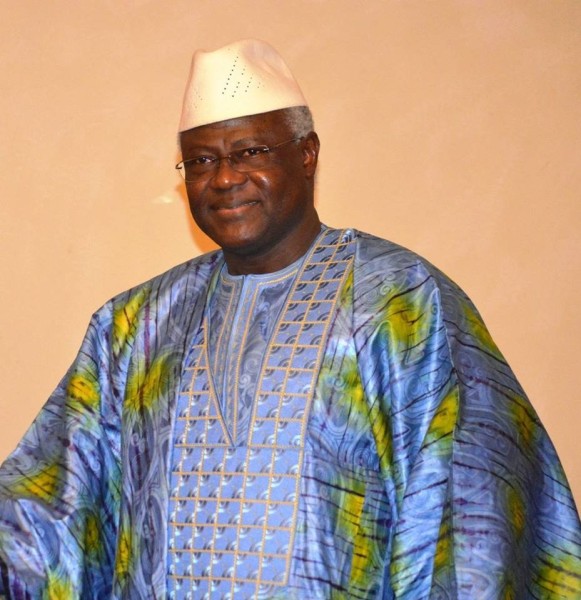Report unveiled on Zimbabwe’s cyber landscape
December 14, 2017
By Wallace Mawire*
 A new report titled: Ordeals in ‘the long-walk to Freedom’: The State
of Internet Governance in Zimbabwe has been launched to assess the
country’s cyber landscape.
The report was prepared in partial fulfillment of the Zimbabwe
Democracy Institute (ZDI) and the Media Centre (MC) consortium’s
research objective to examine the state of Internet Governance and
Freedom in Zimbabwe.
It is part of the project titled: “Increasing political and
socio-economic liberties online: Support for New Advocacy campaigns
and research on Internet Governance/Freedom in Zimbabwe” funded by
USAID and Counterpart International.
According to the consortium, as Zimbabwe struggles to transition from
authoritarianism, internet freedoms have proven to be salient areas to
pin hopes on. It is added that the authoritarian state has been aware
of this and has put in place serious counter-measures.
It is added that now that the country is bracing for 2018 elections,
it is necessary to audit the state of internet governance /freedom
because it is the modern space that the government has recently tried
so hard to capture.
The study found that, Zimbabwe currently suffers the machinations
of an authoritarian regime that fears freeing the private media,
social media and the internet in general in belief that doing so will
prevent possible public scrutiny, transparency, criticism and exposure
of its maladministration crimes to the electorate and consequent
electoral defeat.
It is reported that many restrictive laws, regulations and
projects have been put in place to stifle internet freedoms, hinder
access to online media, information and hinder freedom of expression,
protest, advocacy and other barricades placed by deliberate policy
omission.
In addition, it is said that no clear and serious internet uptake
promotions, programmes and projects have been done despite decades of
government talk shop promises.
The researchers add that to enhance internet freedoms under
authoritarian internet governance framework in Zimbabwe, this study
has made recommendations to key stakeholders which include government
such as repealing or amendment of authoritarian legislation such as
CODE, POSA, AIPPA, ICA among others to make them consistent with the
Constitution of Zimbabwe. “This will pave way for internet democracy
and enjoyment of peoples’ liberties online,’ according to the
researchers.
It has also been recommended that civic organizations and Human
Rights Defenders across the country should create dense networking
systems using modern ICTs through which to share ideas, skills and
disseminate information and establish lasting solutions to internet
freedom challenges.
They also say that there is need for civic education targeting
journalists to enhance their professionalism and adherence to human
rights in their profession online, journalist forums, education and
networking forums should be increased to link practitioners at
national level to their fellows at grassroots levels across the
country.
“This will enhance sharing of skills and strategies and increase
coverage and transparency of internet governance practices across the
country,” according to the researchers.
They add that Journalists should write and verify news for
authenticity before publishing to avoid misinforming the public.
“Many interviewees advised journalists to stick to the pillars of
ethical journalism: objectivity, truth, balance, impartiality,
fairness, accuracy and lack of bias,’ the report says.
It also says that there is need to create a dense network of
journalists in public media, private media, social media, freelance
and citizen journalists at grassroots levels to enhance efficient
reportage.
It also says that Journalists should be trained on best ways to
securitize their operations online to galvanize them against
espionage, interference and sabotage.
It is added that Journalists should network and coalesce to
petition parliament on institutional and legislative reforms necessary
for freeing internet based journalism.
The private sector has been urged to also assist in exposing violation
of liberties and jealously protect people’s accounts, transactions and
communications in their custody.
The international community has been urged to receive internet
freedom reports and grievances from civic society and other players
and assist in pressuring governments to resolve them, facilitating
civic engagements and dialogues at regional and international levels
to find strategies through which internet liberties can be enjoyed in
such a way that does not compromise peace and security.
It is added that internet freedom should be adopted and emphasized as
values not separate from offline freedoms and its security should be
guaranteed under existing regional and international mechanisms.
A new report titled: Ordeals in ‘the long-walk to Freedom’: The State
of Internet Governance in Zimbabwe has been launched to assess the
country’s cyber landscape.
The report was prepared in partial fulfillment of the Zimbabwe
Democracy Institute (ZDI) and the Media Centre (MC) consortium’s
research objective to examine the state of Internet Governance and
Freedom in Zimbabwe.
It is part of the project titled: “Increasing political and
socio-economic liberties online: Support for New Advocacy campaigns
and research on Internet Governance/Freedom in Zimbabwe” funded by
USAID and Counterpart International.
According to the consortium, as Zimbabwe struggles to transition from
authoritarianism, internet freedoms have proven to be salient areas to
pin hopes on. It is added that the authoritarian state has been aware
of this and has put in place serious counter-measures.
It is added that now that the country is bracing for 2018 elections,
it is necessary to audit the state of internet governance /freedom
because it is the modern space that the government has recently tried
so hard to capture.
The study found that, Zimbabwe currently suffers the machinations
of an authoritarian regime that fears freeing the private media,
social media and the internet in general in belief that doing so will
prevent possible public scrutiny, transparency, criticism and exposure
of its maladministration crimes to the electorate and consequent
electoral defeat.
It is reported that many restrictive laws, regulations and
projects have been put in place to stifle internet freedoms, hinder
access to online media, information and hinder freedom of expression,
protest, advocacy and other barricades placed by deliberate policy
omission.
In addition, it is said that no clear and serious internet uptake
promotions, programmes and projects have been done despite decades of
government talk shop promises.
The researchers add that to enhance internet freedoms under
authoritarian internet governance framework in Zimbabwe, this study
has made recommendations to key stakeholders which include government
such as repealing or amendment of authoritarian legislation such as
CODE, POSA, AIPPA, ICA among others to make them consistent with the
Constitution of Zimbabwe. “This will pave way for internet democracy
and enjoyment of peoples’ liberties online,’ according to the
researchers.
It has also been recommended that civic organizations and Human
Rights Defenders across the country should create dense networking
systems using modern ICTs through which to share ideas, skills and
disseminate information and establish lasting solutions to internet
freedom challenges.
They also say that there is need for civic education targeting
journalists to enhance their professionalism and adherence to human
rights in their profession online, journalist forums, education and
networking forums should be increased to link practitioners at
national level to their fellows at grassroots levels across the
country.
“This will enhance sharing of skills and strategies and increase
coverage and transparency of internet governance practices across the
country,” according to the researchers.
They add that Journalists should write and verify news for
authenticity before publishing to avoid misinforming the public.
“Many interviewees advised journalists to stick to the pillars of
ethical journalism: objectivity, truth, balance, impartiality,
fairness, accuracy and lack of bias,’ the report says.
It also says that there is need to create a dense network of
journalists in public media, private media, social media, freelance
and citizen journalists at grassroots levels to enhance efficient
reportage.
It also says that Journalists should be trained on best ways to
securitize their operations online to galvanize them against
espionage, interference and sabotage.
It is added that Journalists should network and coalesce to
petition parliament on institutional and legislative reforms necessary
for freeing internet based journalism.
The private sector has been urged to also assist in exposing violation
of liberties and jealously protect people’s accounts, transactions and
communications in their custody.
The international community has been urged to receive internet
freedom reports and grievances from civic society and other players
and assist in pressuring governments to resolve them, facilitating
civic engagements and dialogues at regional and international levels
to find strategies through which internet liberties can be enjoyed in
such a way that does not compromise peace and security.
It is added that internet freedom should be adopted and emphasized as
values not separate from offline freedoms and its security should be
guaranteed under existing regional and international mechanisms.





























